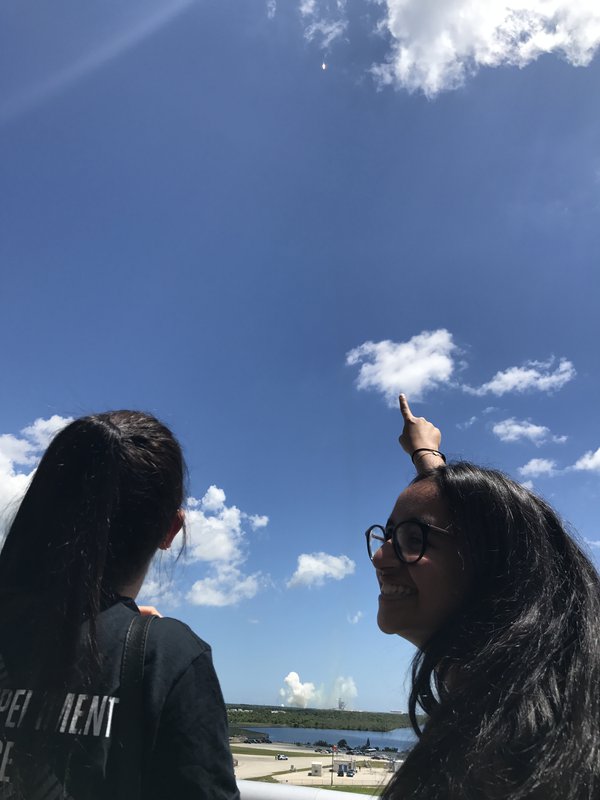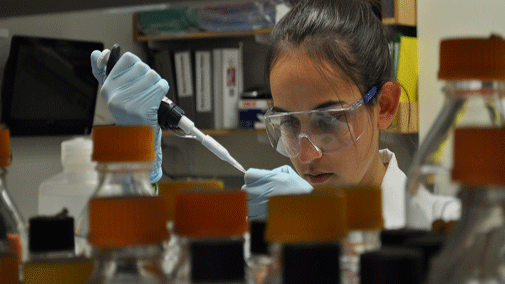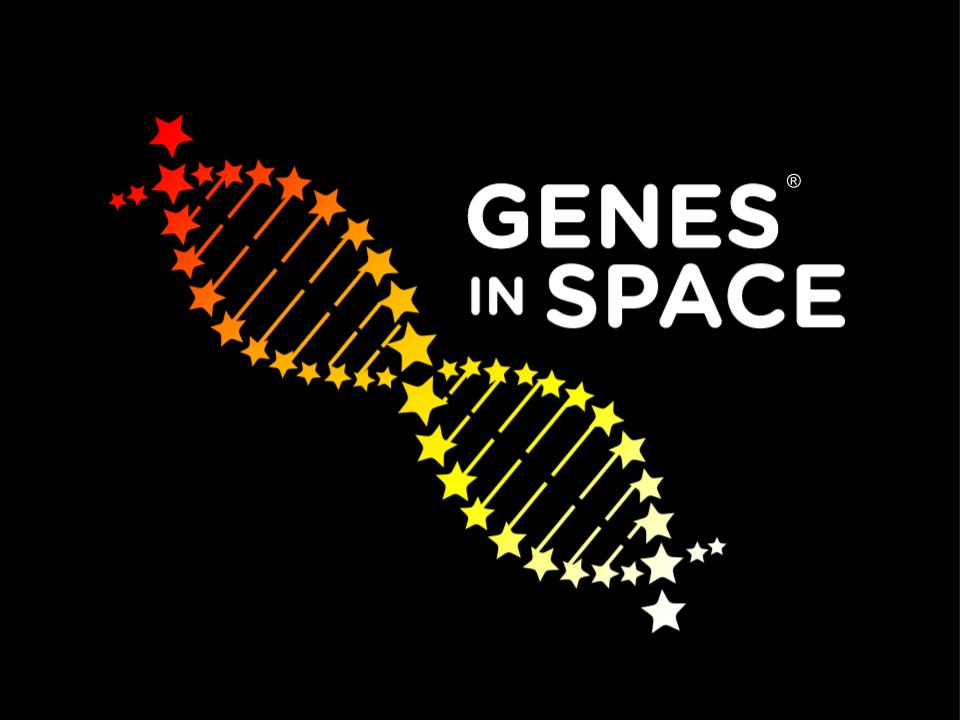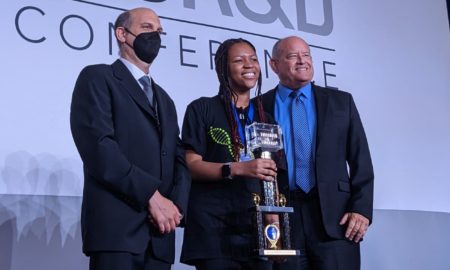Publication announcement: New Genes in Space Study in PLOS ONE
Genes in Space research has been published, again! The experiment designed by Alia Almansoori, winner of the first international Genes in Space Contest, was published today in the peer-reviewed journal PLOS ONE. Harvard scientist Dr. Tessa Montague and the Genes in Space team mentored Alia through the design, execution, and interpretation of her experiment. In addition to watching the rocket launch with her experiment aboard, Alia received a personalized message from astronaut Peggy Whitson who carried out Alia’s experiment aboard the International Space Station. Learn more about Alia’s Genes in Space journey HERE.
Read the paper: Gene expression studies using a miniaturized thermal cycler system on board the International Space Station.
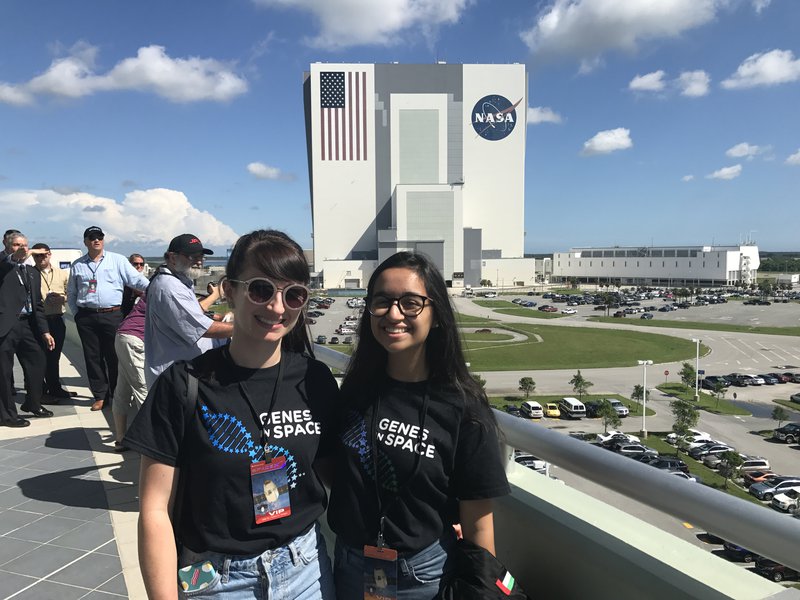
Alia’s goal was to test how genes respond by turning on or off when exposed to the stresses of space travel, such as cosmic radiation and microgravity. Genes encoding for heat shock proteins often turn on to protect cells from damage; guided by this knowledge, Alia and Tessa developed molecular assays that would allow astronauts to detect when heat shock protein encoding genes are switched on. Alia and Tessa used a model organism, the tiny worm C. elegans, to conduct their experiment because they are easy to work with and have a set of heat shock proteins similar to the human ones.
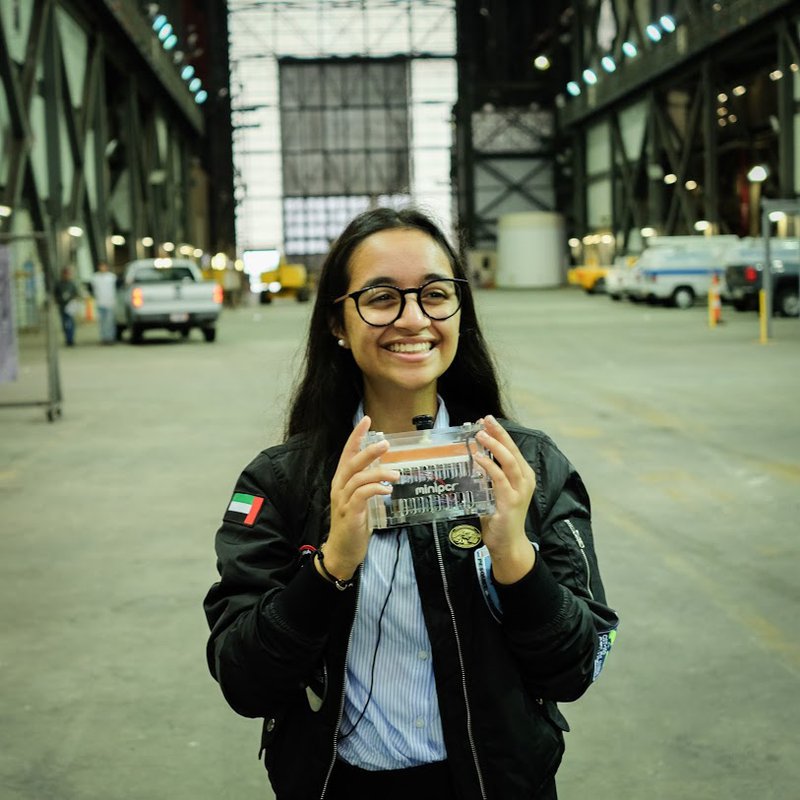
Astronauts aboard the space station conducted the experiments, starting with messenger RNA (mRNA) which is an early indicator of gene activation, copying this RNA into DNA (cDNA), and amplifying the cDNA to detect how active one heat shock gene was in space. Demonstrating that a complete molecular workflow for targeted RNA detection can be successfully used in space will pave the way for further experiments to study gene expression changes in response to microgravity and other cosmic conditions.
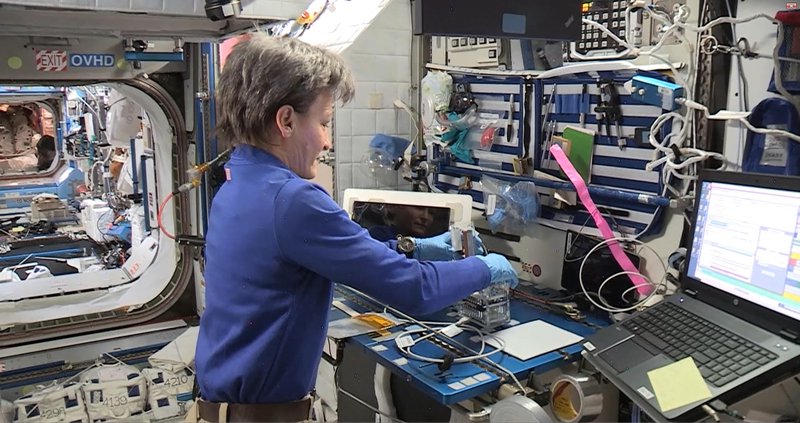
Alia designed her Genes in Space experiment with the goal of protecting astronauts on the journey to Mars. “The need to explore connects us all as humans and it inspires us in different ways to pursue advances,” Alia said. “I looked at how astronauts might need to be protected while in space, or at least offer them a way to see what changes are taking place in their bodies. Knowing that, it may be possible to prevent such damage from taking place at all.” Alia dreams of one day traveling to Mars and hopes her research could one day benefit herself and other astronauts.
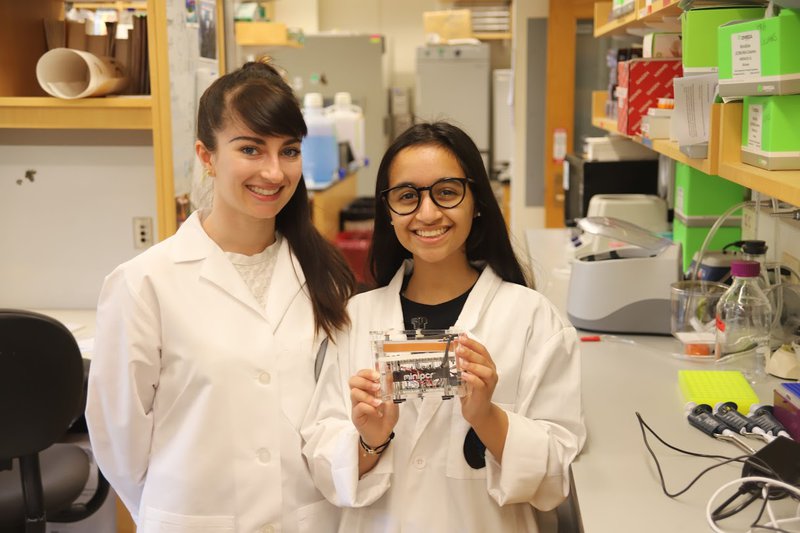
The publication of the results of Alia and Tessa’s work represents a major accomplishment for Genes in Space. Sharing the results of this student-led investigation will allow scientists to build upon Alia’s work and hopefully inspire others to pioneer DNA science in Space. “It’s been such a fun journey mentoring Alia from the early stages of her science proposal, to planning a complete, controlled experiment, watching it launch into space (one of the highlights of my life), and then writing it up as a manuscript.” Tessa said “This is an adventure I could never have anticipated, and I’m so grateful to the Genes in Space team for making it possible. I’m really excited to see what the future holds for Alia and the other young space scientists… the future is bright!”
Congratulations to Alia, Tessa, and the entire Genes in Space team on the publication!
